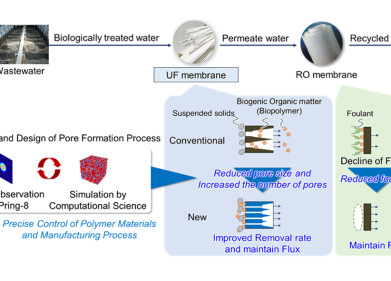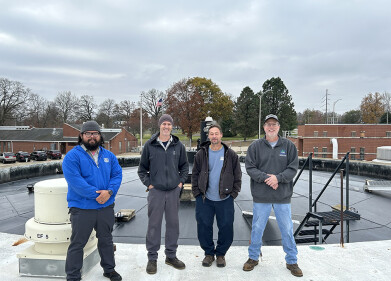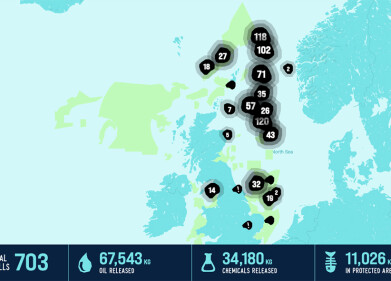Water/Wastewater
Total Number of UK Anaerobic Digesters Reaches 250
May 03 2013
Once again BCI Process (UK) has been awarded a contract to design, fabricate and install the mechanical services required for an anaerobic digestion (AD) plant. On this occasion the initial concept for the project was arranged by PROjEN on behalf of the customer A C Shropshire Ltd, a family owned farming business in Leicestershire. Using their expertise in this field, BCI was able to deliver the project on time and within budget.
The issue of using waste products for power generation is being actively encouraged in order to reduce the amount of waste sent to landfill. With the number of anaerobic digestion plants and companies involved in their construction growing rapidly, it is important that prospective clients select the most suitable team for each project.
A C Shropshire Ltd. farms 320 hectares and is involved with arable, beef and pig production, as well as with a long-established waste food processing business. As such the business was ideally suited to the installation of an AD plant, being able to combine both farm and food waste for the digester, and allow it to produce electricity and bio-fertiliser.
The pig unit on the farm produces 18,000 tonnes of liquid manure each year, with other farming operations producing 2,000 tonnes of manure. Previously this was stored in large tanks on site before being applied to the arable land belonging to the holding or on neighbouring farms. This process could generate a nuisance odour during the spreading, however, with the manure being processed through the AD plant, this odour is greatly reduced.
PROjEN PLC, a specialist engineering management company, prepared the initial process design concept for AC Shropshire Ltd. This concept was used by BCI Process and developed into a full 3D design for the pipework services and support structures. Using its considerable expertise in this field, BCI used the latest Solidworks design capabilities to produce the most efficient layout for the equipment to be installed by both themselves and other contractors.
All the pipework services were constructed from light gauge metric stainless steel to ensure the new installation would provide long lasting service. With the bulk of the fabrication completed in their premises at Keighley, West Yorkshire, BCI was able to ensure the quality of the fabrications was consistent and assured. The second advantage of in-house fabrication was to allow a consistent flow of materials to their on-site engineers, allowing them to complete the installation on time and within budget.
In addition to the pipework and support structures, BCI also supplied and installed the valves as well as the pipe insulation, used to protect against freezing. In this way its engineers were able to be certain that their part of the installation was all completed to the necessary specification and allow the other contractors to fulfil their parts of the build schedule.
Andrew Shedden of BCI Process remarked “Our reputation is for providing the very highest standards of workmanship, on time and on budget. Like any quality contractor we achieve this by rigorously training our staff, operating strict working procedures, risk assessments and method statements, and using the latest 3D CAD software to develop concept designs into working assemblies.”
The completed plant will process all 20,000 tonnes of manure generated by the various farming operations on the site and will be blended with around 25,500 tonnes of human food by-products. The different elements of the wastes will be mixed before passing through three 5,000m³ fermenting tanks at a rate of 100-120 tonnes per day in a continuous process lasting over thirty days.
The gas produced is cleaned and supplied to a combined heat and power system (CHP) to produce heat and power for the farm and other operations as well as power to be supplied to the Grid. The liquid residue from this process is stored in two other tanks for up to six months prior to spreading on the land as organic fertiliser rather than pig slurry. Overall, the process will produce 2 MW of electricity and around 43,000 tonnes of liquid organic fertiliser.
Completion of this facility coincided with the total number of AD plants in the UK, excluding waste water plants, passing the 104 mark according to the bio-economy consultants NNFCC (National Non-Food Crops Centre) and the Waste & Resources Action Programme (WRAP). Water UK confirms that there are now over 146 water authority based AD sites.
Events
Apr 08 2025 Targi Kielce, Poland
Apr 08 2025 Bahrain
Apr 10 2025 Beijing, China
Apr 10 2025 Beijing, China
Apr 15 2025 Moscow, Russia














